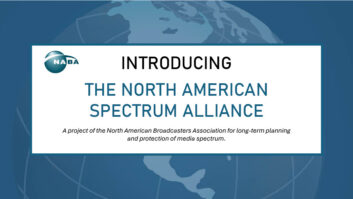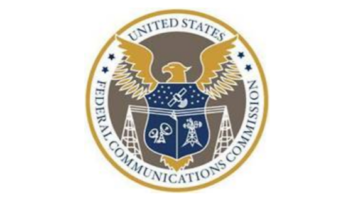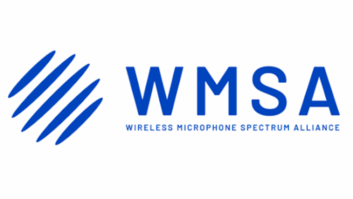FCC Commissioner Jessica Rosenworcel addressed the State of the Net Conference in Washington on Tuesday and focused on Wi-Fi spectrum issues. Here is a transcript provided by the FCC.
It’s a treat to be here at the State of the Net Conference. So thank you to the Internet Education Foundation for having me — and thank you for the good work you do to foster conversation about Internet policy.
Upfront, I think I need a disclaimer. As a commissioner at the Federal Communications Commission speaking at the State of the Net Conference I am going to defy expectations today. I am not going to talk about network neutrality. I support network neutrality. But I think that this issue does not lack attention. So I want to upend expectations and talk about something else. I want to talk about something that warrants more attention and deserves more support.
I want to talk about Wi-Fi. We need more Wi-Fi.
We need more Wi-Fi because it is an essential on-ramp for Internet connectivity.
We need more Wi-Fi because unlicensed spectrum is our best bet for wireless innovation.
We need more Wi-Fi because in a world of constant connections it is responsible for billions of dollars of economic activity — and growth.
But I am getting ahead of myself. So before talking about how to have more Wi-Fi in more places, I want to tell you a story. I want to dust off a tale from the FCC archives and tell you about the time the agency rewrote the book on spectrum policy and laid the groundwork for Wi-Fi.
So roll back three decades. To help you out, here’s some color: “Back to the Future” was on the big screen. Swatch watches were the smartwatches on our wrists. Commodore meant computing and compact discs were emerging as the end-all, be-all future of music. It was a long time ago. But three decades ago — just like today — the FCC was tasked with managing the airwaves. So the agency had lots of licenses — for radio, television, satellite services — and a bunch of other things.
Not all of our airwaves, however, were occupied. We had a handful of underused frequencies. These were airwaves that had been designated for industrial, scientific and medical uses. But the services we imagined would develop in these bands never quite did — in part, because under FCC rules they had to contend with interference from some widely used devices, like microwave ovens.
In fact, so little was happening in this spectrum, these airwaves were known as “garbage bands.” The conventional wisdom was that they were junk. They were scraps of spectrum where demand for wireless licenses would just be limited.
But this is where the story takes an interesting turn. The FCC decided to think differently. We decided we could do more than just dismiss these bands as junk. We decided to abandon the traditional practice of providing licenses to single operators to control in these specific bands for specific purposes. And we decided to ask technical experts for some creative ideas.
Once we got started, the questions multiplied — fast. Why should the FCC dictate what technologies should use these underused frequencies? What if instead we set some basic technical parameters? And what if we gave the public access to these airwaves? That would mean that instead of thinking of spectrum like a license or a lease we would think about it like a highway, where if you simply comply with the rules of the road you can do things and go places.
In FCC circles this was edgy stuff. It was a move away from command and control spectrum policy. It was a different way to think about interference and optimizing the airwaves.
To their credit, my predecessors at the FCC not only asked the right questions — they took action. As a result, three decades ago the FCC designated its first significant swaths of unlicensed spectrum for public use in these so-called “garbage bands.”
This is the spectrum where Wi-Fi was born. In time, with the development of the 802.11 standard, we turned this wireless junk into gold. Because today, our lives are not just dependent on wireless connectivity, they are deeply dependent on unlicensed spectrum — and Wi-Fi is an enormous part of that.
Wi-Fi is how we get online. More than half of us have used public Wi-Fi — and more than 60% of us rely on Wi-Fi at home.
Wi-Fi is how our wireless carriers help manage their networks. In fact, today nearly one-half of all wireless data connections are offloaded onto unlicensed spectrum. So it may not be intuitive, but unlicensed spectrum helps manage the flow of traffic on licensed airwaves.
Wi-Fi is how we foster innovation. That’s because the low barriers to entry for unlicensed airwaves make them perfect sandboxes for experimentation. This is where we tinker. It is where we can explore new ideas for Internet-enabled connectivity — at low cost.
Wi-Fi is also a boon to the economy. The economic impact of unlicensed spectrum has been estimated at more than $140 billion annually — and it’s only going to grow.
This is good stuff. We need to keep it coming. We need to make Wi-Fi a priority in spectrum policy. It needs to move from the back bench to policy prime time.
So here are three ideas to make it happen.
First, let’s commit to finding more spectrum for Wi-Fi and unlicensed activity. Last year, the FCC freed up 100 megahertz of spectrum in the 5 GHz band for unlicensed use. So far, so good. Next year, the FCC has an opportunity to bring more unlicensed spectrum to market through the smart use of guard bands in the 600 MHz band. So we need to follow through — and do it.
Second, let’s take a fresh look at how Congress accounts for our airwaves. Traditionally the legislative process has overlooked the value of unlicensed spectrum and favored licensed spectrum. This is not because of some rancorous partisan divide. It’s not because of some unsavory battle between industries. No, it’s because when the nonpartisan staff at the Congressional Budget Office do their job, they assign value to spectrum when it is licensed and sold at auction. So bills that direct the FCC to sell licensed spectrum get high grades, while legislation that creates more spectrum for Wi-Fi gets low marks.
This accounting method is outdated. Because it fails to take into account the more than $140 billion in economic activity unlicensed spectrum creates each year. That economic activity can grow — if we find a new way to put Wi-Fi on the books. So I think it is time to develop a multiplier that accounts for the billions of dollars of activity that new unlicensed spectrum can generate in the economy. Because making small accounting changes could be the ticket — to bigger Wi-Fi opportunities in the future.
Third, let’s make clear that we will not tolerate malicious or willful interference with Wi-Fi. This is already the law under the Communications Act. However, last year a bunch of hotels banded together and filed a petition with the FCC. They asked the agency to bless their ability to block hotel guests from using their own Wi-Fi connections under the guise of network security concerns. There are other ways to address legitimate security concerns — but this is a bad idea.
We’ve all been hotel guests. Wi-Fi is the difference between working in the comfort and privacy of your own room and being relegated to the business center. It’s the difference between streaming the content of your choosing and being stuck with the hotel’s on-demand selection. It’s the difference between seamlessly getting your work done at a conference and getting saddled with special fees and charges just to connect.
In other words, Wi-Fi gives us choices. Those choices matter well beyond hotel rooms. We live in a wireless world built on constant connectivity. Having more ways to connect in more places makes us stronger — and will help grow our economy as the Internet grows less visible because it becomes a part of everything we do.
So let’s not let this petition linger or create any uncertainty. I hope my colleagues at the FCC will work with me to dismiss this petition without delay.
So there you have it. The State of the Net owes a lot to the state of wireless connectivity. And I believe the future of wireless connectivity will be stronger if we make room for more Wi-Fi.







